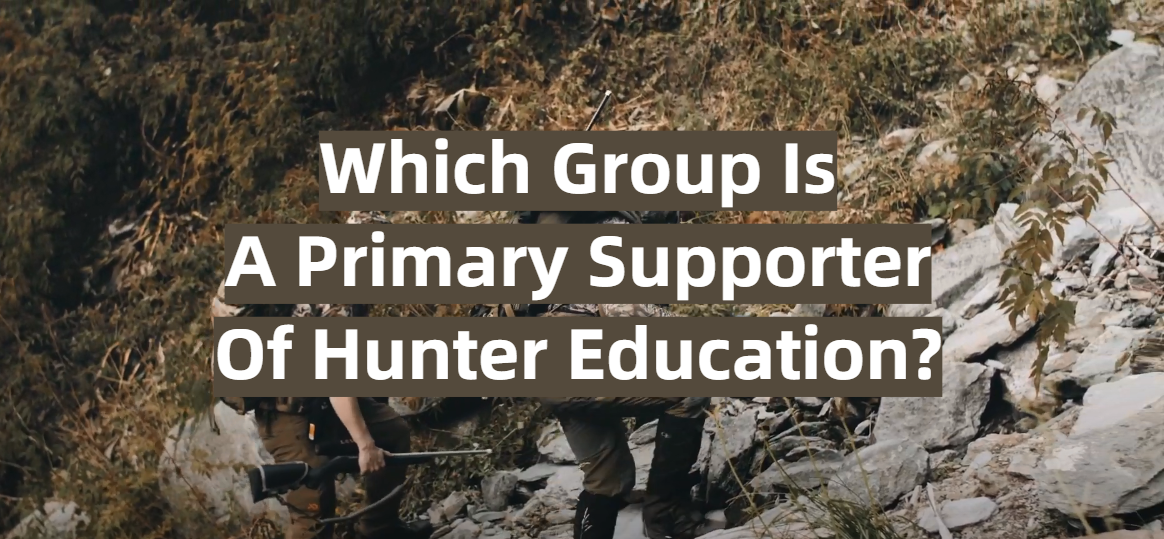Hunting is a safe practice that has been much safer as a result of all-American hunter education. Over the past 50 years, hunting-related injury rates have declined significantly, despite record-breaking herds of deer, elks, wild turkeys, geese, and other animals.
Hunters earned billions of dollars for habitat conservation in North America throughout the twentieth century and supported the cause of wildlife preservation initiatives. Still, in the twenty-first century, hunters are the most powerful government advocate for legislation that safeguards wild things and wild places for potential generations.
The International Hunter Education Association (the short title is IHEA) is the only legal group considered as a primary supporter of hunter education in the United States. Their hunter education services are typically administered by a group of individuals or an agency in each state. The primary objective of this type of education is to teach citizens regarding hunting protection and a number of other critical aspects of hunting.
Table of Contents
About the IHEA
The IHEA is the specialized hunter education organization of the United States of America. It is partnered with 50 state fish and hunter education services and the Association of Fish and Wildlife Agencies. Throughout the United States, the services employ 55,000 coaches, the majority of which are volunteers, who teach hunting and shooting protections and obligations.
IHEA Hunter Education courses regularly train and certify over 650,000 pupils. Since 1949, almost 40 million people have taken hunter education courses covering weapons protection, bowhunting, wildlife conservation, game field treatment, responsible shooting, landowner ties, and wildlife identification.
In 1949, New York State mandated the first mandatory hunter education curriculum in order to eliminate shooting accidents. As hunter education initiatives expanded across the world, protection coordinators organized what is now known as the IHEA in order to develop a standard curriculum for hunting courses.
IHEA-USA introduced a series of education guidelines for introductory hunter education courses in 2014. These principles serve as the cornerstone for this course, which not only offers a solid foundation for newcomers but also serves as a refresher for seasoned hunters.
Young hunters have already been taught weapon and shooting protection by Hunter education initiatives. Today, hunter education services are critical for the following reasons:
- Reduce hunting-related shootings and other hunting-related injuries;
- Encourage good hunting behavior, such as adherence to hunting regulations and laws;
The key purposes of legal hunter education
Hunter education aims to instill accountability, develop expertise and experience, and inspire inexperienced and veteran hunters to participate in the activity. Hunter’s survival depends on responsible, ethical actions as well as personal interests.
4 major purposes of hunter education each hunter should follow:
- Safety skills. Hunting safety techniques are learned through experience and hands-on teaching. It is very beneficial to master these techniques from a seasoned hunter;
- Responsibility. A competent and skilled hunter can never be a real hunter if he or she does not also act responsibly. Courtesy, reverence for others and wildlife, and participation are all examples of responsible action. Poaching and irresponsible behavior are not tolerated by responsible hunters. Hunting regulations must be followed, and responsible hunters must hunt equally, follow protection codes, and wait for a quick kill before shooting. Hunting’s future can be determined by how you act and how others see you;
- Knowledge. Learning and comprehending the fundamentals of proper gun handling and hunting constitutes information. You can understand how a weapon works and how to use it properly before being qualified in the ability of firearm shooting;
- Involvement. Participating in attempts to make hunting a respected activity is an important part of the process of being a real, responsible sportsman. This involves instructing others, collaborating with landlords, and assisting game wardens. It also entails being a member of conservation groups that assist in ecosystem preservation and wildlife protection.
Any hunting instructional course should focus on teaching hunters how to be healthy, responsible, and law-abiding.
How can you get hunter education online?
Before purchasing a license for the first time, novice hunters in the United States must complete a hunter education course. Prior to the disease outbreak, most hunter ed courses had an in-class or online learning portion, as well as a supervised field day component that included a final exam. To complete the course, students needed to complete the in-person field portion.
However, when it comes to pandemic limits, a certain kind of protection is taken into account. State departments are adapting their bowhunter and hunter education systems to help serve emerging hunters as a result of this.
States are becoming innovative in order to make hunter education more available. Volunteer teachers or simulated instructors direct students through the material usually learned in states like Wisconsin, Washington, and Florida’s instructor field day.
Other states are transitioning to Internet-only courses with exams, and Montana is providing free online hunter and bowhunter ed courses. This is only available to citizens of Montana. For out-of-state shooting, these courses would also be reciprocal throughout the United States.
The advantage of online hunter education is that more people would be able to complete the course on their schedule. And, with prices varying from $10 to $30 per hunter, the majority of courses are now accessible online.
It’s a good idea to earn your bowhunter license now, because it’s still readily available online, whether your state wants it or not. Any states demand a bowhunting license, although others do not. However, taking it now would mean that you will be able to archery hunt around the country in the near future.
Go to the state wildlife agency’s hunter ed website to find out what your state’s standards are. Online courses are available from companies like Hunter-Ed and the NRA, but each state is reacting to the current pandemic in its way. Some states, such as Utah, continue to require limited in-person courses for some hunter groups.
FAQ
Who sponsors and funds legal hunter education in the USA?
The US Fish & Wildlife Service helps state wildlife authorities with a host of hunting-related programs, such as hunter education, property development, and wildlife habitat enhancement. The Pittman–Robertson Act founded federal aid in wildlife conservation funding in 1937. Hunting license revenue is a primary source of support for environmental conservation, and it has supported the recovery of both game and nongame habitats.
How much can a Hunter Ed Course cost?
It depends on the state when you want to learn. For example, in California, the fee is about $25.
Is hunter education obligatory in all states?
The National Hunter Education Certificate would be accepted by all states, territories, and countries in the United States that have mandatory hunter education standards. Similarly, Hunter Education certifications provided by other jurisdictions that satisfy official IHEA-USA standards will be accepted by the national organizations.
How old should you be to get a legal hunting license?
Junior Hunting Licenses are required in most states for minor U.S. citizens and non-residents who hunt poultry or mammals. Additional tag licenses are available for big game hunters aged 12 and older.
How can you find the legal hunter education classes in your neighborhood?
Volunteers instruct the Courses. When volunteers set the dates for a course and prepare to teach it, they contact the hunter education network, and the course is listed on the Game and Fish Department’s Online Services website. The public may then participate in the open courses.
Is a hunter education certificate from one state legal in another state?
It also depends on the state laws. Valid hunter education certificates provided by other state preservation or wildlife organizations, for example, are accepted in North Dakota. 4-H, FFA, and NRA classes do not follow North Dakota’s specifications. Furthermore, while some states accept full website-based courses like the ones offered by Hunter-Ed, these classes do not fulfill North Dakota’s criteria.






Leave a Reply